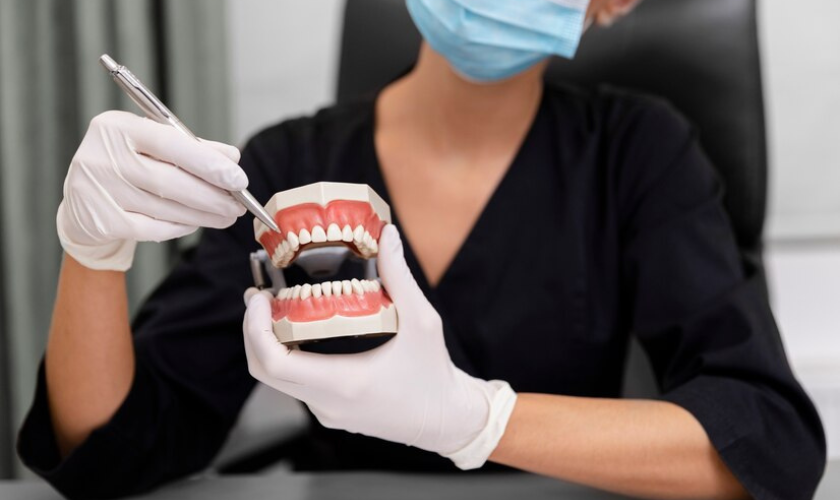The Evolution of Dentures: From Ancient Solutions to Modern Comfort

Dentures, those artificial teeth replacements, have a long and intriguing history that spans centuries. From the ancient civilizations to the cutting-edge dental technology of today, the evolution of dentures is a testament to human ingenuity and the pursuit of dental well-being.
The Origins of Dentures: A Historical Odyssey
Early Solutions in Antiquity
In ancient times, people resorted to various materials to replace missing teeth. Archeological findings reveal that the ancient Egyptians used animal teeth and shells to create rudimentary dentures. These early attempts may seem primitive by today’s standards, but they laid the foundation for the development of dental prosthetics.
The Renaissance and Denture Craftsmanship
Fast forward to the Renaissance era, when the craftsmanship of dentures took a significant leap. Skilled artisans started using ivory, bone, and even human teeth to create more aesthetically pleasing dentures. Wealthy individuals sought after these bespoke dental solutions, turning dentures into status symbols as well as functional necessities.
The 19th Century: Dentures Enter Mass Production
The Industrial Revolution Impact
The 19th century witnessed the Industrial Revolution, bringing about significant changes in denture production. Mass production techniques were employed, making dentures more accessible to a broader population. This era marked a shift from exclusive craftsmanship to a more standardized approach.
The Advent of Vulcanite
Vulcanite, a rubber-like material, revolutionized denture design during the 19th century. It offered a more comfortable and flexible alternative to earlier materials. The ability to customize dentures according to individual specifications improved the fit and functionality, enhancing the overall dental experience.
20th Century Innovations: Towards Modern Comfort
The Introduction of Acrylic Resin
The 20th century brought about further innovations with the introduction of acrylic resin. This lightweight and durable material became the preferred choice for denture production. The improved aesthetics and comfort provided a more natural feel, enhancing the quality of life for denture wearers.
Advancements in Dental Implants
As technology advanced, dental implants emerged as a groundbreaking alternative to traditional dentures. These implants offered a more permanent solution, mimicking the natural structure of teeth. The integration of technology allowed for more precise fittings, addressing issues of stability and comfort.
Modern Comfort: Dentures in the 21st Century
The Role of Digital Dentistry
In the 21st century, denture fabrication has embraced digital dentistry. 3D X-ray (CBCT), Computer-aided design (CAD), and computer-aided manufacturing (CAM) technologies have revolutionized the precision and customization of dentures. This ensures a snug fit, improved aesthetics, and enhanced functionality.
Materials of the Future
Researchers are continually exploring new materials for denture construction, aiming to improve durability, comfort, and aesthetics. From nanotechnology to 3D printing, the future promises even more advanced solutions, providing denture wearers with unprecedented levels of comfort and functionality.
Witnessing the Transformative Journey
From the early days of basic replacements to the sophisticated, comfortable solutions of today, he emphasizes the importance of staying abreast of these advancements to offer the best possible care to his patients.
The evolution of dentures is a captivating narrative that reflects not only the progress of dental technology but also the enduring human quest for improved oral health and well-being. As we marvel at the journey from ancient solutions to modern comfort, Dentist Katy stands as a witness to the continuous improvement in dental care, ensuring smiles are not just restored but enhanced for a lifetime of confidence and comfort.




